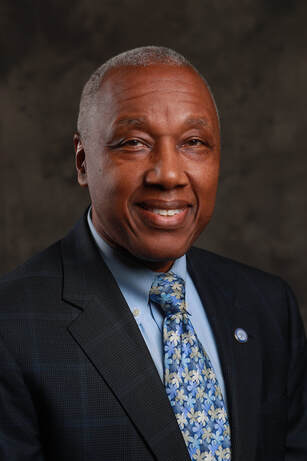|
The following is reprinted with permission from the author, John Vassall, MD. Black Americans are reluctant to take the coronavirus vaccine. When the Pfizer vaccine became available at Howard University Hospital on December 14, only 600 of approximately 1,900 employees had signed up for the 725 doses received. Howard University is one of the oldest and finest historically Black colleges, reverently referred to as “The Mecca” by Te-Nehisi Coates. Anita Jenkins, CEO had her shot administered publicly in an effort to change the minds of the 70% of workers in a November hospital survey who either did not want to take the vaccine or did not want it immediately. If you find yourself hesitating to take the vaccine, you are not alone. I offer information to help you make your decision. The disease
COVID-19 stands for COrona VIrus Disease 2019. It is a new “novel” coronavirus that causes respiratory illness and other disease manifestations. The disease is highly contagious and spreads easily in crowded conditions. It may produce no symptoms, especially in children but can cause disease ranging from mild to serious to deadly. Most people who recover return to normal, but some people, called “long haulers” have serious symptoms and impairments that last for months, and some people die weeks or months after apparent recovery. Black people are not more susceptible to the disease but are more likely to be exposed to the virus because of living and working circumstances. People in crowded environments, those who routinely encounter large numbers of strangers especially in poorly ventilated spaces, and those without ready access to handwashing and sanitary facilities have higher risk. There is only supportive treatment and no cure for the disease; those who become ill and cannot get immediate, excellent nursing and medical care, and those already ill with a pre-existing condition when infected are less likely to do well. When it comes to this disease, the best course of action is not to become infected and not to spread the virus to others. That means wearing an effective mask or face covering, avoiding contact with other people who might be infected and frequent handwashing. The vaccine The purpose of a vaccine is to prime your immune system to fight off an infection by exposing you to harmless versions of bacteria or viruses. Every adult born and raised in the United States has had a vaccine; they are safe and effective. The coronavirus vaccine produced by Pfizer is new, unique, and likely to be among the safest and most effective vaccines ever developed. It is 95% effective in preventing serious coronavirus illness. It has only 10 ingredients, making it by far less likely to cause allergic or other untoward reactions than other vaccines. It contains the messenger RNA active ingredient, cholesterol and three types of fat molecules to encase the active ingredient, two sodium salts including table salt (sodium chloride), two potassium salts, including one used in food as a salt substitute (potassium chloride), and finally, sugar (sucrose). There are no preservatives; it must be stored in an ultracold environment. In contrast, the influenza vaccine contains a weakened virus therefore has RNA, DNA, protein, and all other elements of a virus. It is produced in eggs, therefore contains some egg components to which some might be allergic, and it contains preservatives. The decision Why are Black people reluctant to take the vaccine? It’s not about the disease; we know that we can be exposed, we know that we can put our family and friends at risk, and we know that it is serious. It’s not about the vaccine. We’ve all had shots before and we know intuitively that if this vaccine is good for the masses of white people, is likely to be good for us too. What this is about is racism and Black people’s collective, and personal experiences with racism in healthcare. How does a Black American make the vaccine decision? I read articles about the need for health systems to eliminate racism and earn the trust of Black Americans. While necessary and true, I am sad to report that it will not happen in time to stem this pandemic. How do we proceed under current circumstances? First, we trust the science not the politics. We are in an unusual time in history when politicians are unapologetically lying to us and we know it. On the national level, we can trust Dr. Anthony Fauci, and although the Centers for Disease Control have been wounded and compromised, they are still worthy of our trust. Second, we review our circumstances. Black people have been and continue to be mistreated in medical settings by some physicians and others. We know when we have been mistreated, we can feel it. It is time to talk about our experiences with our friends, relatives, and trusted advisors, to compare their experiences with our own, and to make change where we can and where we must. Many of us tolerate substandard care and second-class treatment. In some cases, we have no alternatives, however, if there are options, we should seek them. We need to demand positive change where we can and vote with our feet and when possible by leaving those systems and those practices where mistreatment is not being addressed. Seek a safe place. In some cases, the health department may be a more trusted alternative than the local healthcare provider. The vaccine will be available in pharmacies, and very possibly in vaccination clinics set up in churches and other trustworthy facilities. Find the place and the people that feel right. The pandemic has exposed racism, and inequities. In the spirit of not letting a perfectly good crisis go to waste, this is the time to make changes now and for the future. John Vassall, MD Seattle, Washington Comments are closed.
|
AuthorSOur blog includes but is not limited to events, insights, and highlights to augment basic education. Archives
July 2024
|

 RSS Feed
RSS Feed